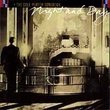| All Artists: Carl Maria von Weber, Franz [Vienna] Schubert, Herbert von Karajan, Berlin Philharmonic Orchestra Title: Schubert: Symphonies 1-4; Rosamunde ballet music Members Wishing: 0 Total Copies: 0 Label: EMI Classics Release Date: 2/15/2005 Genre: Classical Styles: Opera & Classical Vocal, Historical Periods, Modern, 20th, & 21st Century, Symphonies Number of Discs: 2 SwapaCD Credits: 2 UPC: 724358606423 |
Search - Carl Maria von Weber, Franz [Vienna] Schubert, Herbert von Karajan :: Schubert: Symphonies 1-4; Rosamunde ballet music
 | Carl Maria von Weber, Franz [Vienna] Schubert, Herbert von Karajan Schubert: Symphonies 1-4; Rosamunde ballet music Genre: Classical
|
Larger Image |
CD DetailsSimilarly Requested CDs
|
CD ReviewsWeightier Schubert than usual Wayne A. | Belfast, Northern Ireland | 04/11/2005 (4 out of 5 stars) "The tendency with these earlier symphonies, several written I think when Schubert was in his teens, is to make them sweet and beguiling. Beecham is the ultimate source for this approach, it has its rewards, and most think its never been bettered. Karajan seems to have a different slant. He assumes that young Schubert wanted to get out of his knee breeches and wear long pants ASAP. In a way that makes sense; I know of no young creative person who starts out determined to reflect their own youth and inexperience, who wants to sound cute. Therefore the performances here are weightier, looking decidedly forward to the "Unfinished" and the "Great." The result is perhaps more, in an ironic sense given the conductor, historically accurate--they now sound like (over)ambitious and often melodramatic symphonies written by a teen genius, not charming confections tossed off by a mature Schubert who couldn't have existed at the time of their writing. They're now in the same league as the Bizet Symphony and that's not such a bad place to be. There are losses and gains. The performances by the Berlin are excellent and so's the sound quality. At times there's some genuine drama but be warned there isn't as much hoochy-coo as we expect from recordings of this music. Schubert had hoochy-coo down pat probably by the age of six--I'm sure for him it was just writing good melodies, an innate gift he couldn't get around if he tried--but it took him years to develop his very unique and convincing drama. Early on when he tries to get serious (and that's more often than we care to admit as these recordings show) he sounds like a second rate French composer of dramatic overtures. For the price I strongly recommend these as alternates to the frothier Schubert recordings we've been served up lately. If nothing else (and don't get me wrong, I do like them) they make for terrific background music. [Years later: I have this horrible feeling that the one person who read this and "didn't find it helpful" was offended by my use of the expression "hootchy-coo" in reference to the deity, Schubert. I am so sorry. Otherwise, I can't imagine what was unhelpful about it, in fact I think my points about young Schubert's self-image are original and fairly well-thought-out. This whole Amazon review thing is sometimes bewildering but it sometimes makes me understand why George W. Bush keeps winning elections in this country]" Not Karajan's best, despite lovely execution Santa Fe Listener | Santa Fe, NM USA | 01/16/2008 (3 out of 5 stars) "By the mid-Seventies Karajan had achieved a degree of orchestral perfection with the Berlin Phil. that remains legendary. It's hard to back down from the super-gleaming, streamlined ensemble he preferred to the simpler mode of Schubert. The orchestral sound has been considerably tamed, however, and the wind soloists play with conisderably refinement. Nor is Karajan bored by the simplicty of the teenge composer's structure; these readings show some excitment and charm -- sample the whirlwind string playing in the finale of the Fourth, for example.
But the absence o f faults isn't the same as the presence of virtues. To my ears, Karajan hasn't come close to the heart of Schubert's tender, haunting, and ultimately transcendent style. He's not alone; Carlos Kleiber delivers a mercilessly knife-edged Thrid on DG, a real pity given that he commercially recorded only five symphonies. At the other extreme, I find Colin Davis's Schubert cycle on Philips too often tepid and undernourished. The secret is to find as much Beethoven as possible in these early works while not losing Schubert's lyrical charm. Harnoncourt manages to do that in his cycle, and I trust Mr. Richman when he points the way to Kertesz also, though I haven't heard those accounts. In any event, Karajan's Schubert feels all wrong to me, as much as I admire him on almost every other front." |

 Track Listings (9) - Disc #1
Track Listings (9) - Disc #1







